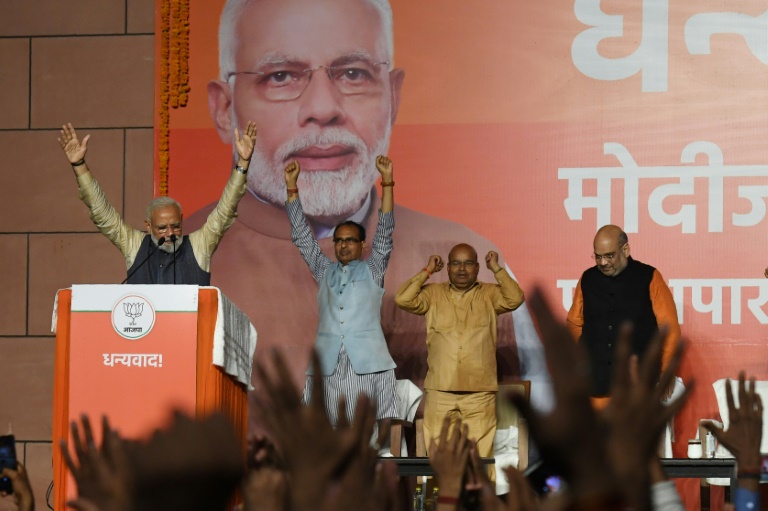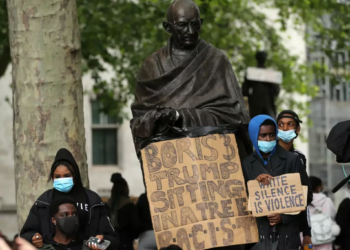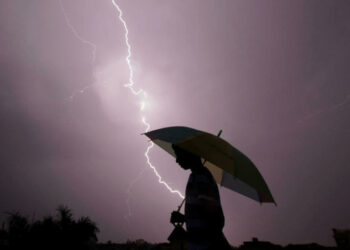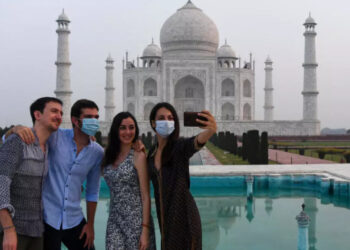India’s ruling Bharatiya Janata Party (BJP) is heading for a landslide victory in the just-concluded elections. Under the leadership of Prime Minister Narendra Modi, the BJP looks all set to improve its performance.
Leads suggest that not only has the party improved its seat-share and comfortably won an absolute majority of seats in the 543-member Lok Sabha (Parliament), but also bettered its vote shares across the country. Along with allies in the National Democratic Alliance, Modi is now all set to form India’s next government.
Thank you India! The faith placed in our alliance is humbling and gives us strength to work even harder to fulfil people's aspirations.
I salute every BJP Karyakarta for their determination, perseverance & hardwork. They went home to home, elaborating on our development agenda.
— Narendra Modi (@narendramodi) May 23, 2019
The victory follows a bitter electoral campaign in which political leaders have exchanged personal barbs and opposition leaders have charged the government with tampering with electoral voting machines.
Alternative Idea of India
Modi’s comprehensive triumph signals a combination of three processes.
For one, the resounding victory is an endorsement of his muscular nationalism and aggressive stance against neighbors Pakistan and China, significant in the wake of terror attacks on military personnel in February.
Second, Modi and his BJP are widely perceived as staunch defenders of Hindutva, a political ideology which believes that Hinduism, India’s majority faith, ought to be the bedrock of Indian nationalism. The election outcomes are a ringing endorsement of this alternative “idea of India” which departs from the ideas of secularism, social justice, and cultural diversity that have hitherto defined Indian nationalism.
Third, Modi is widely seen as having delivered on promises of development, centered on provisioning welfare to the poor, such as homes, toilets, cooking gas, and financial credit. Although the quality of these provisions remains vigorously debated, voters have clearly rewarded Modi for his efforts. Voters have thus been willing to ignore the inconvenience caused to them by controversial decisions such as the demonetization of high-currency notes and the introduction of a unified Goods and Service Tax across India.
Democracy Crisis
The BJP’s comprehensive victory is part of the wider global crisis faced by democracy. Such a crisis is illustrated by the emergence and electoral consolidation of strongmen such as Jair Bolsonaro in Brazil, Donald J. Trump in the United States, and Recep Tayyip Erdogan in Turkey.
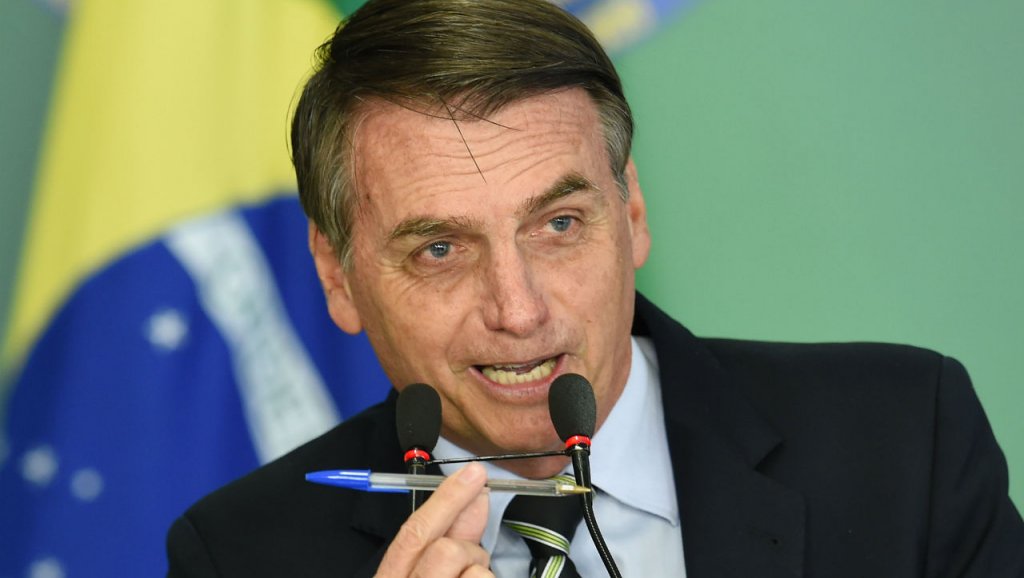
While electoral procedures are respected and adhered, in power elected leaders pay scant heed to protecting the rights of religious, cultural, and political minorities. Fears abound that Modi’s re-election will rent India’s constitutional values and social fabric asunder.
Modi’s Re-Election
Modi’s comprehensive re-election places enormous responsibility on him to continue his policies. He will aggressively posture against both neighbors in the event of cross-border disputes, and perhaps even engage in military retaliation in the event of transgressions.
In its second term, the BJP-led government is even less likely to respect the secular principles enshrined in India’s constitution. Back in 2017, the party nominated a practicing monk to be the Chief Minister of Uttar Pradesh, India’s largest State. Since the BJP’s ascension to power, lynchings of social minorities, especially Dalits and Muslims, have been on the rise, and such attacks may well continue. Assaults such as these only threaten to rupture India’s social fabric, given that Muslims and Dalits each account for approximately 16 percent each of India’s population.
The BJP president also recently declared that India’s proposed National Register of Citizens will include Hindus, Buddhists, Christians and Sikhs from neighboring countries fleeing persecution but not Muslims. One minister has even hoped that the BJP’s re-election will enable it to change India’s secular constitution.
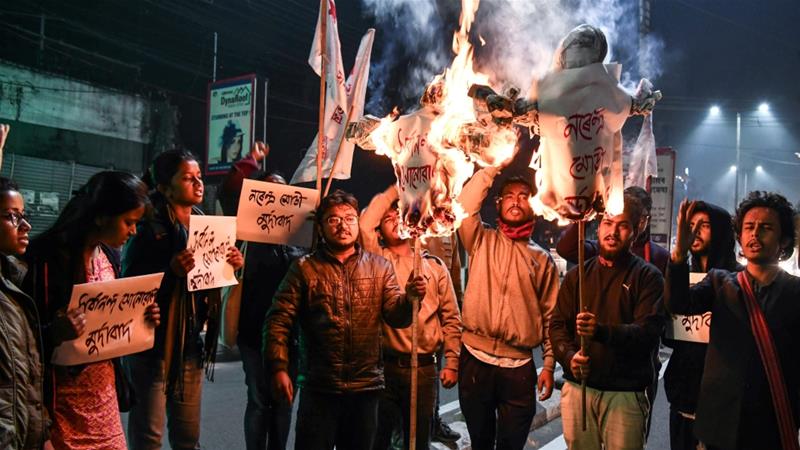
Protesters demonstrate in Assam state in January after India’s lower house passed legislation granting citizenship to members of certain religious minorities, but not Muslims. Leaders of India’s historically oppressed Dalit communities remain anxious that the BJP seeks to dismantle the affirmative actions for oppressed populations guaranteed by the Indian constitution.
Finally, Modi will need to continue to fulfill his welfare promises to the poor, a step that will undoubtedly contribute to poverty-reduction and the expansion of the Indian middle class. However, this promise that may prove difficult to fulfill if economic growth were to stagnate, as is being forecast.
Politically, the BJP’s formidable position appears unenviable. The Congress is on the brink of collapse, as Congress President Rahul Gandhi suffered a shock defeat in one of the constituencies. Northern India’s regional parties have crumbled in the wake of what has been correctly called TsuNaMo, although their counterparts in the south have fared better and may well emerge as a possible fulcrum of opposition.
The locus of opposition to the central government has now shifted to the south, lending a regional dimension to political cleavage. The BJP will need to work deftly with opposition legislators based in the south and prevent political differences from slipping into cultural ones.
Disclaimer: The views and opinions expressed here are those of the author and do not necessarily reflect the editorial position of The Globe Post.

